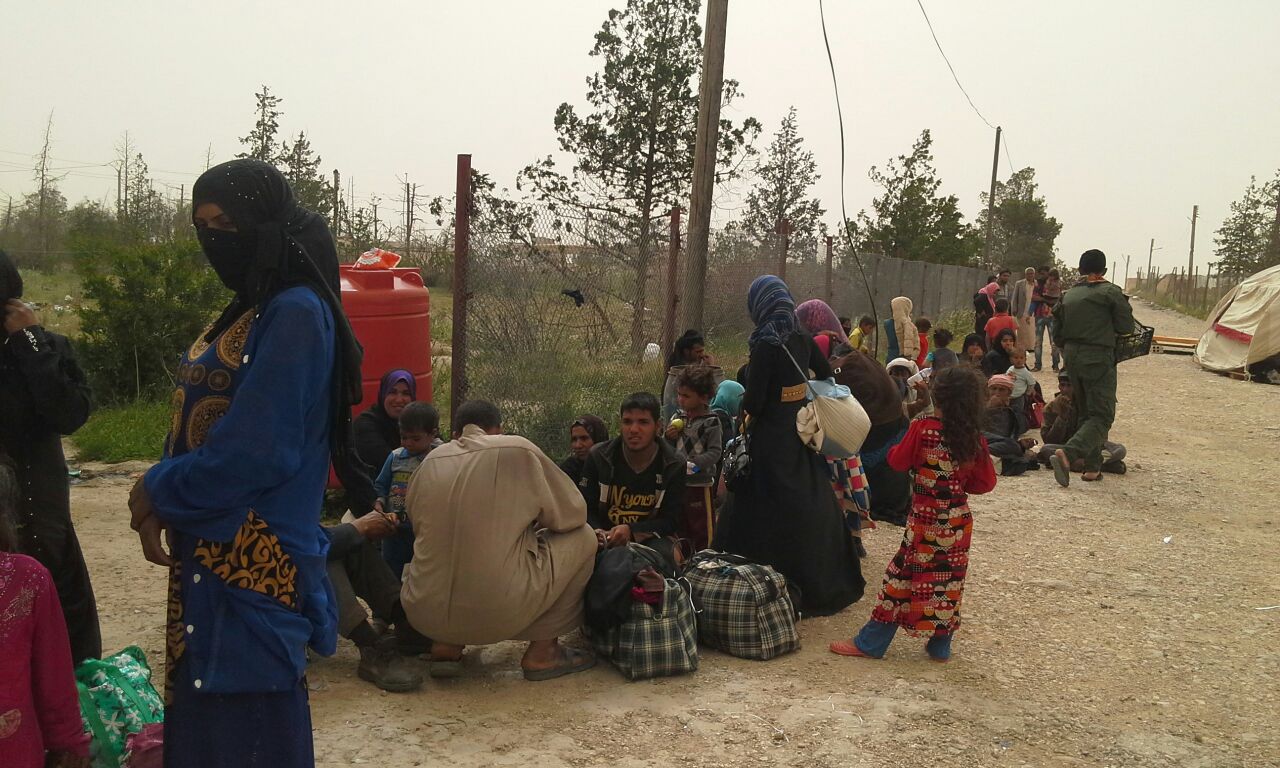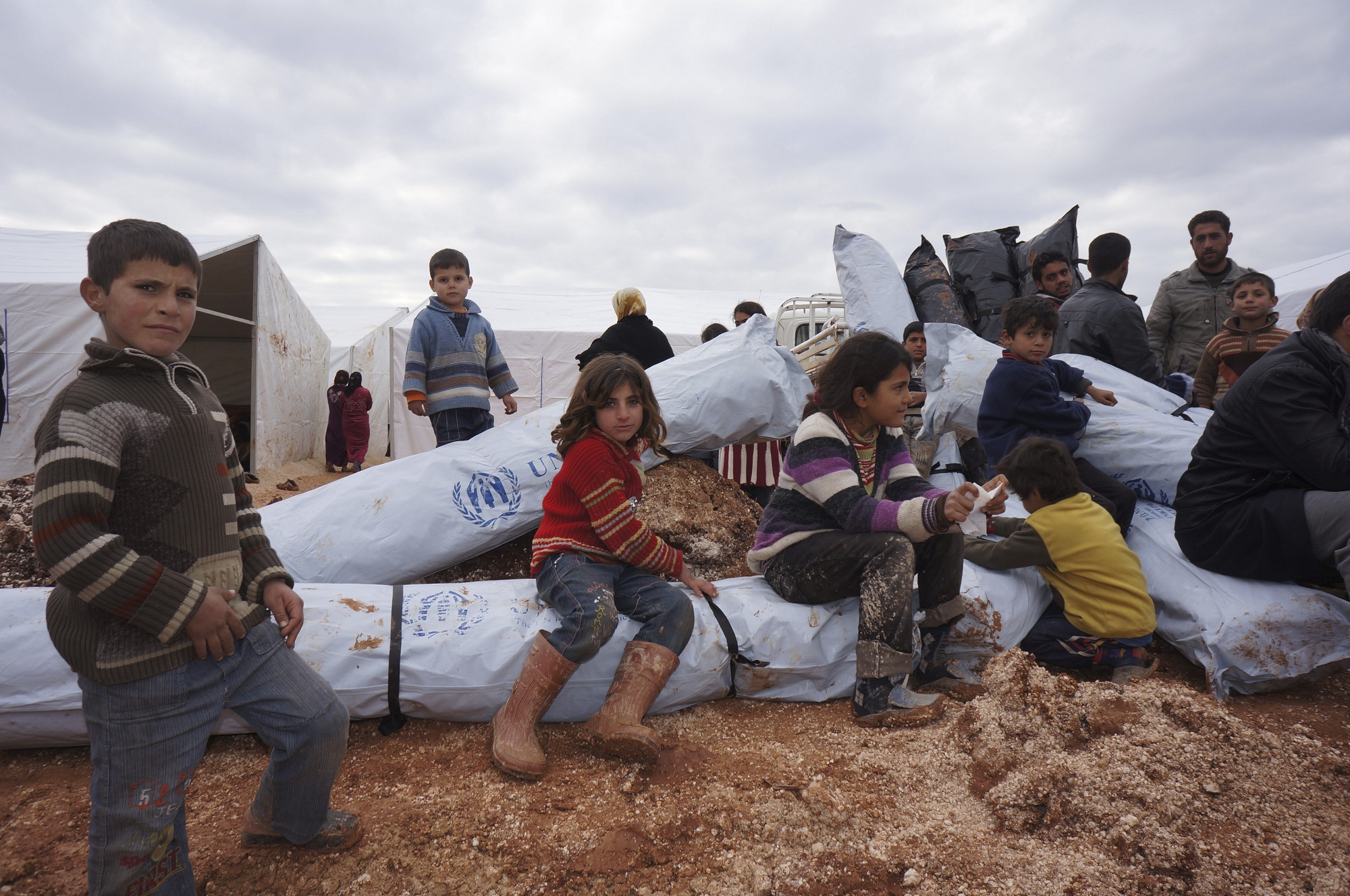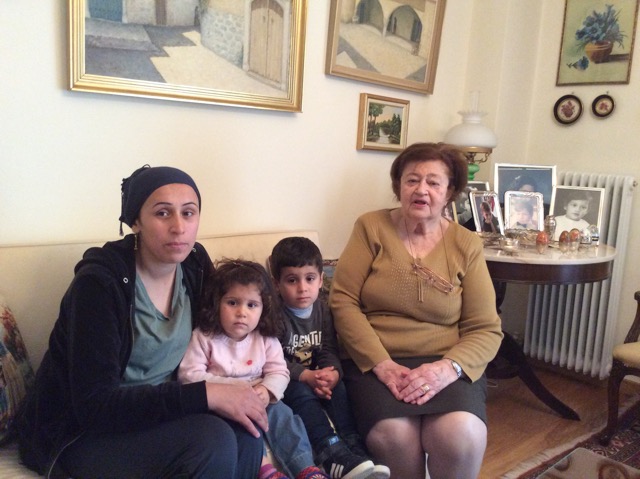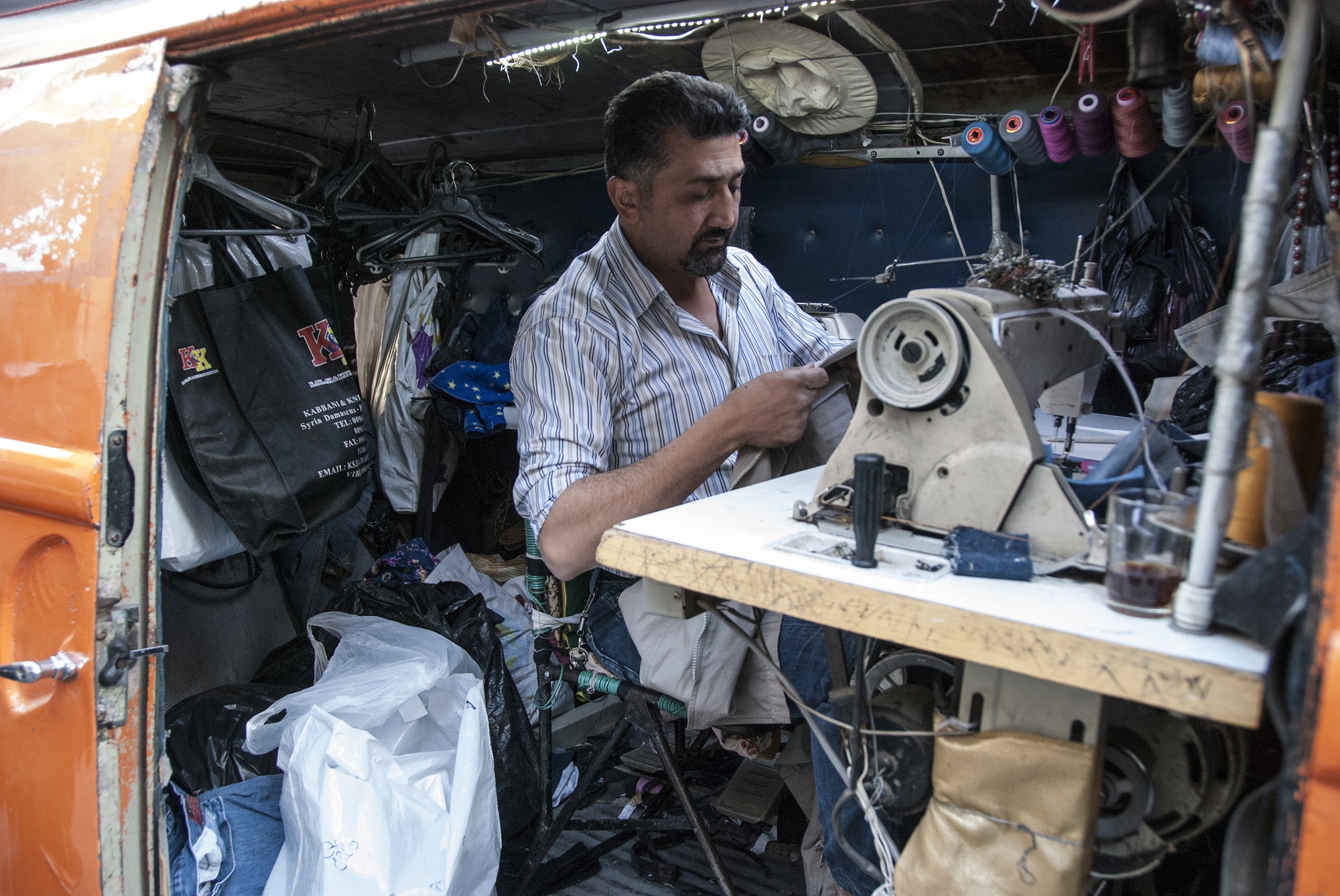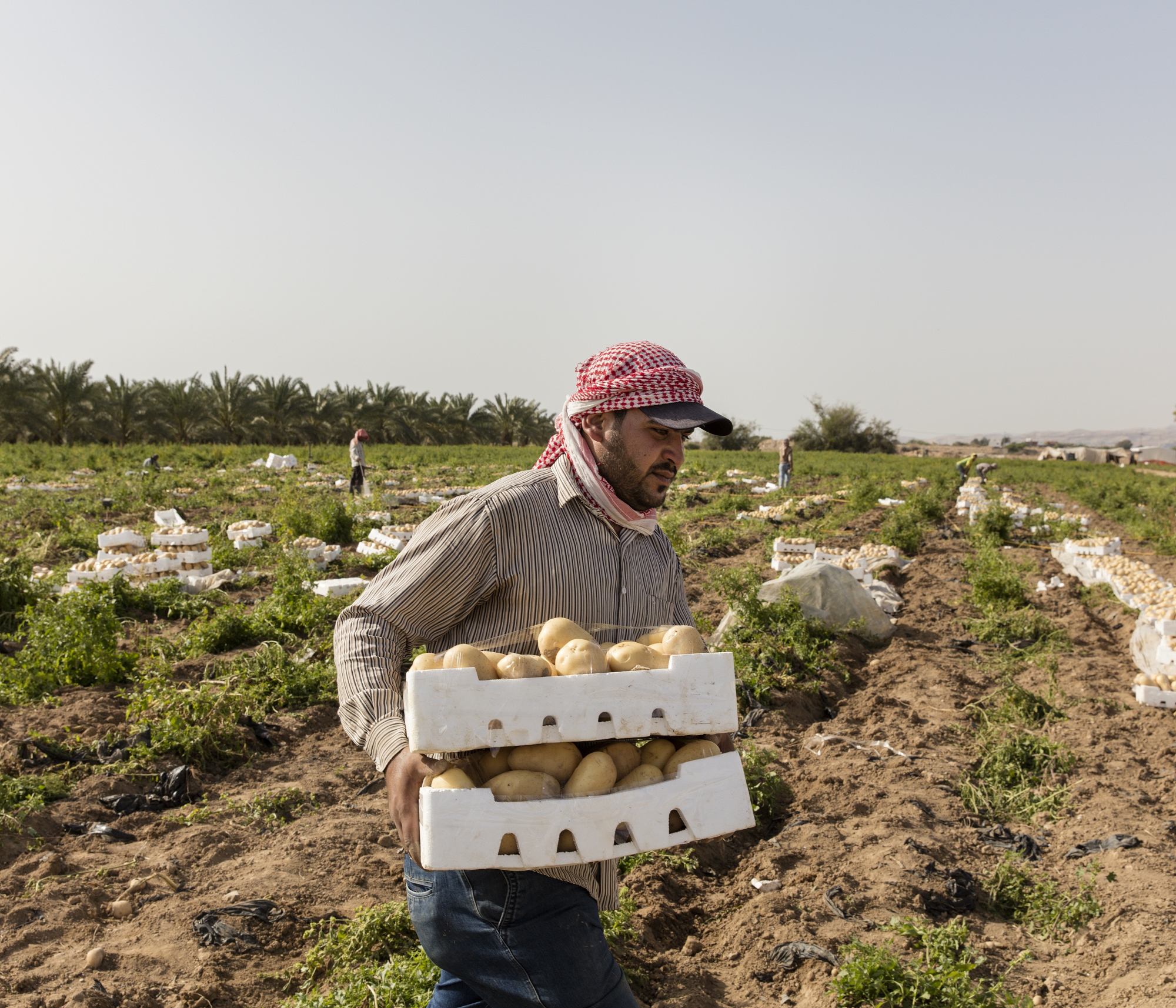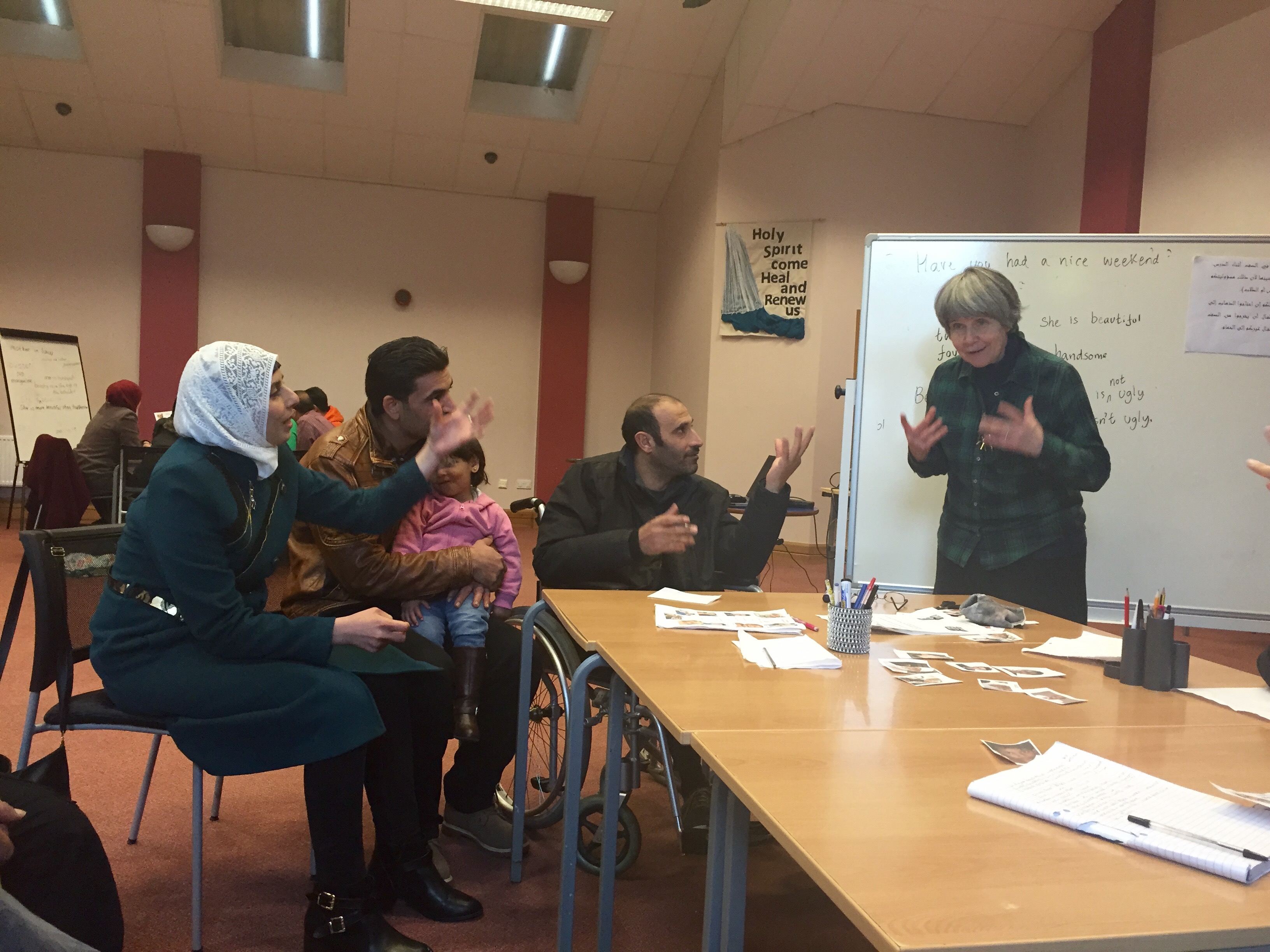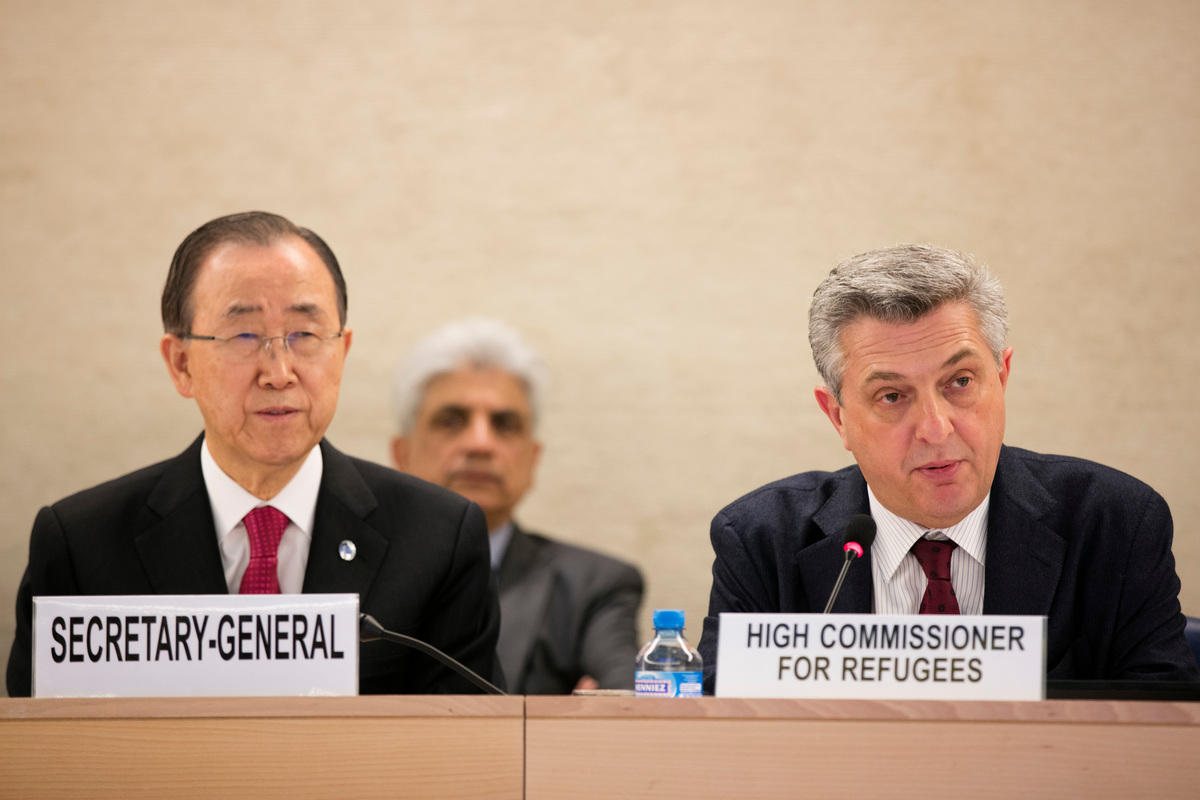UNHCR leader warns of moment of truth for Syria, risk of unmanageable crisis
UNHCR leader warns of moment of truth for Syria, risk of unmanageable crisis

NEW YORK, United States, February 27 (UNHCR) - UN High Commissioner for Refugees António Guterres on Wednesday warned that a "moment of truth" was approaching in Syria and that the international community must not allow the situation to deteriorate further.
Noting the risk of the conflict in Syria spilling over into the region, the High Commissioner told the UN Security Council in New York that "what is happening in Syria today risks escalating very quickly into a disaster that could overwhelm the international response capacity - political, security related and humanitarian."
Guterres stressed: "This must not be allowed to happen."
Describing the current situation facing Syria as a "moment of truth," the High Commissioner said: "The humanitarian situation is dramatic beyond description. The refugee crisis is accelerating at a staggering pace, month after month."
The head of the UN refugee agency, which is running a massive relief operation for refugees in neighbouring countries and for hundreds of thousands of internally displaced, noted that in April 2012, about a year after the conflict began, there were only 33,000 registered refugees in the region.
"As of yesterday [Monday], we had registered - or given out registration appointments - to 940,000 Syrians across the Middle East and North Africa," he said, adding that since early January, more than 40,000 people had fled Syria every week."
Guterres said that while the figures were "stunning," they did not tell of the suffering, especially within Syria, where an estimated 2 million are internally displaced and more than 4 million affected by the conflict. "We also must not forget the half-a-million Palestinian refugees in Syria who are affected by the conflict," he said.
Noting that three quarters of the refugees were women and children, the High Commissioner said many had lost relatives and most had lost their homes, belongings and livelihoods. "The children pay the hardest price of all," he stressed. "Thousands of young lives have been shattered by this conflict and the future generation of an entire country is marked by violence and trauma for many years to come."
Guterres reminded the 15-member Security Council that host countries such as Jordan, Lebanon, Turkey and Iraq were paying a heavy social and economic price for their generosity and humanitarian spirit.
"Countries of asylum have been very generous and kept their borders open, but their capacity to do so is under severe pressure," said the High Commissioner, who pointed out that Lebanon had seen its population of some 4 million grow by 10 percent because of the influx.
"International solidarity in support of the host countries must be urgently reinforced. This is not a question of generosity, but one of enlightened self-interest," he insisted. "Helping them deal with the consequences of the refugee crisis is imperative, as the preservation of their economic and social stability is in everyone's essential interest."
Guterres concluded that the situation in Syria was likely to "deteriorate further before it gets any better." And he said that if worst-case scenarios materialized, the international community would need to further step up its humanitarian response. "It will also need to be prepared to deal with unpredictable consequences should the situation in Syria explode."
That was why, he stressed, the international community must not allow the Syria crisis and other lingering crises nearby to drag down the region and overwhelm the humanitarian response.
High Commissioner Guterres will be visiting the Syria region between 10 and 15 March, visiting Turkey, Jordan, and Lebanon.


